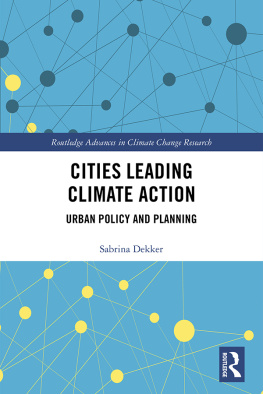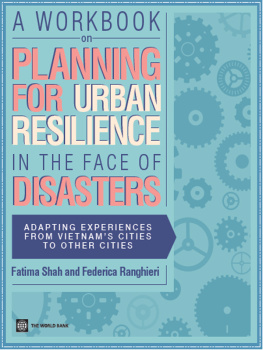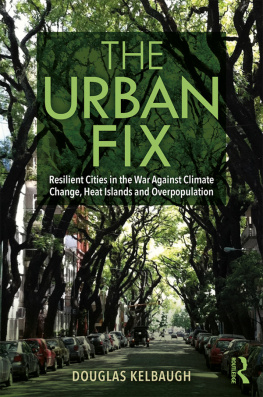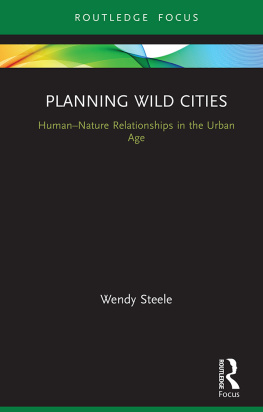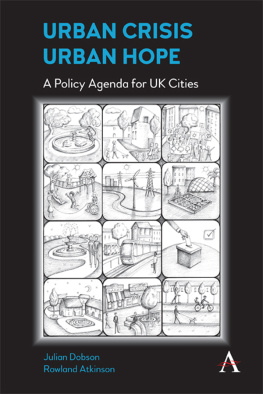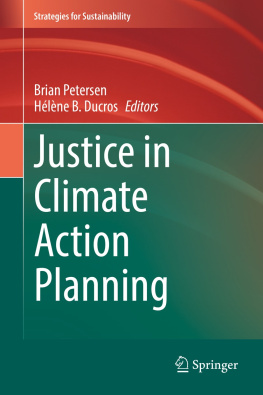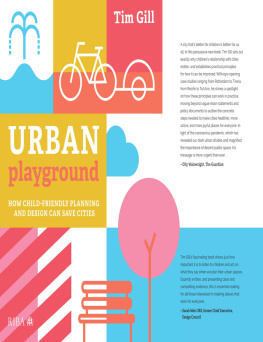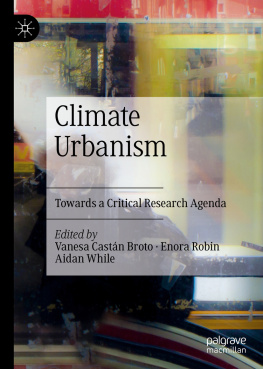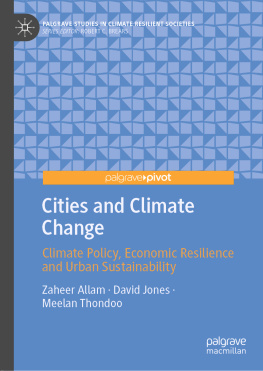Cities Leading Climate Action
This book provides local governments and interested stakeholders with insights into the challenges and opportunities inherent in addressing climate change.
Drawing on in-depth case study research on Vancouver, Portland, Glasgow and Dublin, Dekker examines the policy development processes employed by urban policy makers to respond to climate change, looking specifically at the utilisation of collaborative planning. Emerging from the case studies are lessons for local governments in relation to the role of organisational structure in supporting climate leadership; the importance of leadership, trust, relationship building and narratives for supporting ownership of the responses to climate change by stakeholders; and the need for creative and innovative public engagement to expand the reach of traditional methods such as social media and other technology-based solutions. Finally, Dekker reflects on her experience in the development of climate change action plans for the Dublin Local Authorities.
This book will be of great relevance to students, scholars and policy makers with an interest in climate change resilience, environmental policy and urban planning.
Sabrina Dekker is a climate change researcher, and holds a DPhil from the UCD School of Architecture, Planning and Environmental Policy, Ireland.
Routledge Advances in Climate Change Research
EU Climate Diplomacy
Politics, Law and Negotiations
Edited by Stephen Minas and Vassilis Ntousas
The Global Climate Regime and Transitional Justice
Sonja Klinsky and Jasmina Brankovic
Climate Justice and the Economy
Social Mobilization, Knowledge and the Political
Edited by Stefan Gaarsmand Jacobsen
A Critical Approach to Climate Change Adaptation
Discourses, Policies and Practices
Edited by Silja Klepp and Libertad Chavez-Rodriguez
Contemplating Climate Change
Mental Models and Human Reasoning
Stephen M. Dark
Climate Change, Moral Panics and Civilization
Amanda Rohloff
Edited by Andr Saramago
Climate Change and Social Inequality
The Health and Social Costs of Global Warming
Merrill Singer
Cities Leading Climate Action
Urban Policy and Planning
Sabrina Dekker
For more information about this series, please visit: www.routledge.com/Routledge-Advances-in-Climate-Change-Research/book-series/RACCR
Cities Leading Climate Action
Urban Policy and Planning
Sabrina Dekker
First published 2019
by Routledge
2 Park Square, Milton Park, Abingdon, Oxon OX14 4RN
and by Routledge
711 Third Avenue, New York, NY 10017
Routledge is an imprint of the Taylor & Francis Group, an informa business
2019 Sabrina Dekker
The right of Sabrina Dekker to be identified as author of this work has been asserted by her in accordance with sections 77 and 78 of the Copyright, Designs and Patents Act 1988.
All rights reserved. No part of this book may be reprinted or reproduced or utilised in any form or by any electronic, mechanical, or other means, now known or hereafter invented, including photocopying and recording, or in any information storage or retrieval system, without permission in writing from the publishers.
Trademark notice: Product or corporate names may be trademarks or registered trademarks, and are used only for identification and explanation without intent to infringe.
British Library Cataloguing-in-Publication Data
A catalogue record for this book is available from the British Library
Library of Congress Cataloging-in-Publication Data
Names: Dekker, Sabrina, author.
Title: Cities leading climate action : urban policy and planning / Sabrina Dekker.
Description: 1 Edition. | New York : Routledge, 2019. | Series: Routledge advances in climate change research
Identifiers: LCCN 2018019541| ISBN 9781138485907 (hardback) | ISBN 9781351047807 (ebook)
Subjects: LCSH: City planningEnvironmental aspectsCase studies. | Urban policyCase studies. | Climatic changesEnvironmental aspectsCase studies.
Classification: LCC HT166 .D376 2019 | DDC 307.1/16dc23
LC record available at https://lccn.loc.gov/2018019541
ISBN: 978-1-138-48590-7 (hbk)
ISBN: 978-1-351-04780-7 (ebk)
Typeset in Times New Roman
by Wearset Ltd, Boldon, Tyne and Wear
Contents
Illustrations
Figures
Table
Boxes
Cities leading on climate action
Introduction
Cities are home to over half of the worlds population (Castn Broto, et al., 2013; United Nations Human Settlements Programme (UN-Habitat), 2016): as hubs of economic and social life they continue to draw people with the promise of better opportunities. In recent times though, the flow of populations to urban centres is also being driven by climate change (Campbell-Lendrum and Corvaln, 2007; Crawford et al., 2010; IPCC, 2014; Gouldson et al., 2016; United Nations Human Settlements Programme (UN-Habitat), 2016; Siders, 2017), the impacts of which have created challenges for rural populations; for example droughts, extreme weather events, and extreme temperatures have had adverse impacts on food and water supplies. Extreme weather events, such as Hurricane Katrina, Hurricane Sandy, Hurricane Irma and more recently Storm Emma, flooding, and the growing frequency and intensity of heat waves globally, have seen cities grapple with human casualty and the high economic and social costs of climate change.
Climate changes impacts are not limited to rural and urban areas, or developing and developed countries; they are global, which consequently has seen responses of a global nature be developed and implemented through international agreements and national commitments. Increasingly though, it has become evident that global level policies are too far removed from the everyday anthropogenic causes of climate change (United Nations Human Settlements Programme (UN-Habitat), 2016). Global targets can be set, but the reality is that achieving targets is not fully within the capacity of international bodies. In short, it is people in their daily lives who can engage in tangible actions that enable adaptation to the impacts of climate change. How peoples behaviours are influenced and changed and who leads, guides, and promotes these pressing changes is a question for which one answer is the level of government responsible for living environments. As such there has been an emerging recognition that the potential for achieving gains in the realm of climate change adaptation lies in the capacity of local government and their ability to respond. Cities acknowledge their role in addressing climate change and the challenges they face in creating tangible responses (Doherty et al., 2016; Eckersley, 2016; Huang-Lachmann and Lovett, 2016; Mees, 2017). This is demonstrated by movements and partnerships led by cities namely: the EU Covenant of Mayors, C40 Cities for Climate Change, ICLEIs Green Growth Cities, the World Mayors Council on Climate Change and Rockefellers 100 Resilient Cities. These movements are aimed at developing the capacities of cities to respond to urban challenges, namely climate change, by creating an environment where knowledge can be exchanged and cities can compete with each other.


